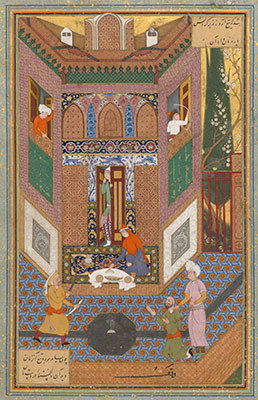The Internet
 How Hurricane Responders Track People Whose Lives Depend on Power: Registries of Medically Fragile Residents
How Hurricane Responders Track People Whose Lives Depend on Power: Registries of Medically Fragile Residents
As the US population ages and more people opt for home health care services instead of lengthy hospital and nursing home stays, the number of Americans who rely on the electrical grid to power life-sustaining home devices is soaring. Hurricane Sandy, which hit the East Coast in 2012, caused prolonged power losses for millions of residents in 17 states and sent hundreds of medically fragile people to hospital emergency departments to plug in their devices. At the same time, people with life-threatening injuries were crowding the same hospitals, creating chaos and death. That’s when the U.S. Department of Health and Human Services decided to help states locate and care for electricity-dependent residents during natural disasters. Using Medicare claims data, the agency created a database of people who use home medical equipment paid for by the federal insurance program for the elderly and disabled. more »
 Most People Fail to Do a Simple Statistical Task When Viewing Online Ratings and Reviews Leading to Purchase Inferior Products
Most People Fail to Do a Simple Statistical Task When Viewing Online Ratings and Reviews Leading to Purchase Inferior Products
When shopping online, consumers engage in a type of social learning by which they become informed from the decisions of others. For example, you’re probably more likely to purchase a book at the top of the New York Times' best-sellers list or buy an app that’s been downloaded millions of times. But observing other people’s choices is only a part of social learning. The other is noting the resulting outcomes through mechanisms like online star ratings. But how people interpret — or fail to interpret — this data is affecting their decision-making in a negative way. more »
 A UC Berkeley PhD Candidate in Computer Science Creates a Step toward Fighting Human Trafficking: Sex Ads are Linked to Bitcoin Data
A UC Berkeley PhD Candidate in Computer Science Creates a Step toward Fighting Human Trafficking: Sex Ads are Linked to Bitcoin Data
Websites for online classified ads selling sex are widely used by human traffickers, but law enforcement efforts to trace and disband human trafficking rings are hindered by the pseudonymous nature of adult ads, the tendency of ring leaders to employ multiple phone numbers and email addresses to avoid detection and the difficulty in determining which online ads reflect willing participants in the sex trade and which reflect victims forced into prostitution. The study is a first step toward developing a suite of freely available tools to help police and non-profit institutions overcome these challenges and identify victims of sexual exploitation on websites such as Backpage and Craigslist.
more »
 Scout Report: Amboyna Conspiracy Trial, Eclipse, Using Social Media, Pangaea, Portrait Gallery Activities, Haiku, Community-College Employer Connection, Jewish Warsaw and More
Scout Report: Amboyna Conspiracy Trial, Eclipse, Using Social Media, Pangaea, Portrait Gallery Activities, Haiku, Community-College Employer Connection, Jewish Warsaw and More
Internet Scout's Research Group's weekly marvelous discoveries: In February 1623, a group of Dutch officials accused a team of English merchants and Japanese mercenaries of conspiring to capture a castle on Amboyna, a small island in what is now part of Indonesia. The island was central to the booming spice trade, which had fueled an increasingly acrimonious rivalry between the British and the Dutch. "Folk art is a reflection of society as seen through the eyes of artists whose perceptions are sometimes traditional and conventional - sometimes unruly, and even wild." So writes the Canadian Museum of History, host of a online exhibit that highlights Quebec folk art from the eighteenth century through today. Michael Twitty explains how enslaved African-Americans created contemporary American southern cuisine. more »






